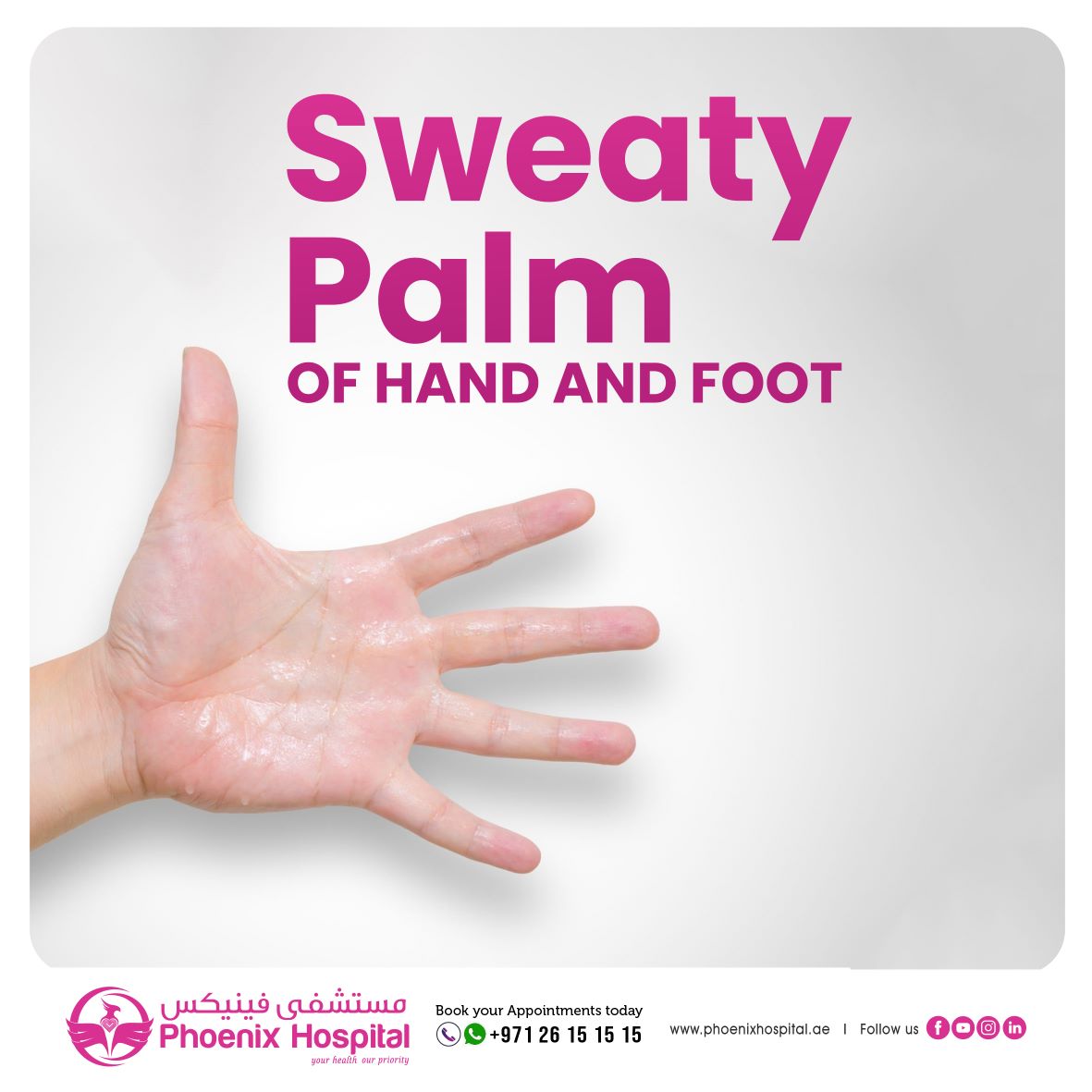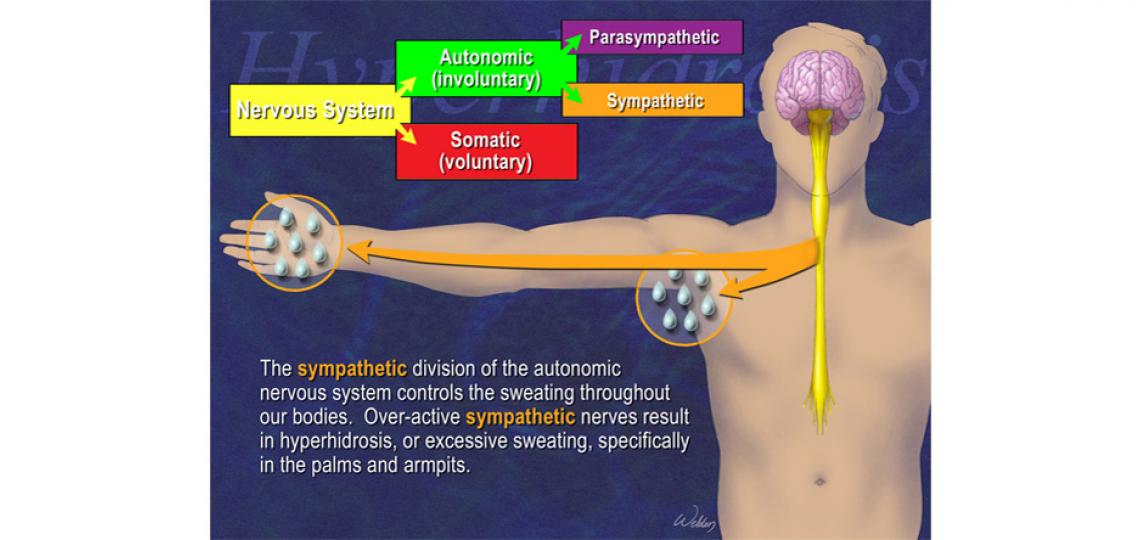Comprehending the Origin of Excessive Sweating and Its Influence On Every Day Life
Excessive sweating, also understood as hyperhidrosis, is a problem that affects a considerable part of the populace, yet its hidden causes and ramifications on everyday operating remain rather enigmatic. While it is typically comprehended as a physical feedback to manage body temperature, the triggers for excessive sweating can vary commonly among people, incorporating not only physical elements however likewise psychological and emotional components. Additionally, the influence of this problem expands past plain pain, often influencing social interactions and overall lifestyle. By diving right into the root triggers of hyperhidrosis and discovering its complex results, a much deeper understanding of this prevalent problem can be gotten, clarifying the complexities that individuals grappling with extreme sweating navigate daily.
Physiology of Sweat Glands
The law of sweat production, a vital physiological procedure, is mainly managed by the task of sweat glands dispersed across the body. Sweat glands are classified into 2 main kinds: eccrine and apocrine glands. Eccrine glands are the most many and are found in virtually all areas of the body. They play an essential function in thermoregulation by producing a watery fluid onto the skin's surface area, which evaporates and assists cool down the body down. On the other hand, apocrine glands are concentrated in areas rich in hair follicles, such as the underarms and groin, and their secretions are thicker and milky in look.
When the body temperature level climbs, either due to exercise, high temperature levels, or emotional anxiety, the nerve system sets off the gland to generate sweat. This sweat is composed mainly of water and electrolytes like sodium and chloride. The procedure of sweat manufacturing is important for preserving the body's inner temperature level within a narrow, optimal variety, highlighting the essential role gland play in human physiology.
Triggers for Excessive Sweating
In understanding the root causes of excessive sweating, it is essential to determine the triggers that can lead to this physiological response. Physical physical effort, high temperature levels, and spicy foods are also recognized to cause too much sweating in individuals prone to this condition.
Additionally, medicines such as some antidepressants, opioids, and particular supplements can likewise function as triggers for hyperhidrosis. Recognizing these triggers is essential in handling extreme sweating efficiently - Exessive Sweating. By recognizing and attending to the particular triggers that motivate excessive sweating in a specific, healthcare providers can establish personalized therapy strategies to reduce this problem and improve the individual's lifestyle
Medical Conditions Associated
Connected with too much sweating are various clinical problems that can intensify this physical feedback. One common problem is hyperhidrosis, a problem characterized by unusually enhanced sweating that goes beyond the body's thermoregulatory needs. This can manifest in focal areas like the hands, soles, underarms, or face, influencing an individual's lifestyle as a result of social shame and discomfort.
Moreover, endocrine problems such as hyperthyroidism, diabetes mellitus, and menopausal warm flashes can additionally lead to extreme sweating. Hyperthyroidism triggers an overproduction of thyroid hormones, accelerating metabolism and triggering sweating.
Moreover, infections like endocarditis, tuberculosis, and hiv have been connected with evening sweats, go to my site a common sign known to interfere with rest and impact total wellness. These medical conditions highlight the varied variety of underlying elements that can add to extreme sweating, demanding thorough analysis and administration by medical care experts.
Emotional and Mental Factors

Influence On Social Interactions
Extreme sweating can have profound impacts on a person's ability to involve comfortably in social communications. The noticeable indications of sweat discolorations or internet wet patches on apparel can result in shame and self-consciousness, causing individuals to take out from social situations. This withdrawal can affect partnerships, limit social activities, and prevent individual and professional growth.

In addition, the anxiousness and self-esteem issues coming from extreme sweating can influence interaction and social abilities. People might struggle to concentrate on conversations, participate in group activities, or reveal themselves confidently. This can result in sensations of isolation and solitude, as social connections end up being challenging to preserve.
Final Thought

While it is typically discover this info here comprehended as a physical feedback to regulate body temperature, the triggers for excessive sweating can differ extensively amongst individuals, incorporating not only physical aspects but psychological and also psychological aspects. By delving into the origin triggers of hyperhidrosis and exploring its complex impacts, a deeper understanding of this prevalent problem can be acquired, shedding light on the intricacies that individuals grappling with too much sweating browse on a daily basis.
Physical physical effort, high temperature levels, and spicy foods are also recognized to activate excessive sweating in people susceptible to this problem. By determining and dealing with the details triggers that trigger excessive sweating in a specific, healthcare service providers can create individualized treatment plans to reduce this problem and improve the person's quality of life.
Extreme sweating can have extensive impacts on a person's ability to involve comfortably in social communications.